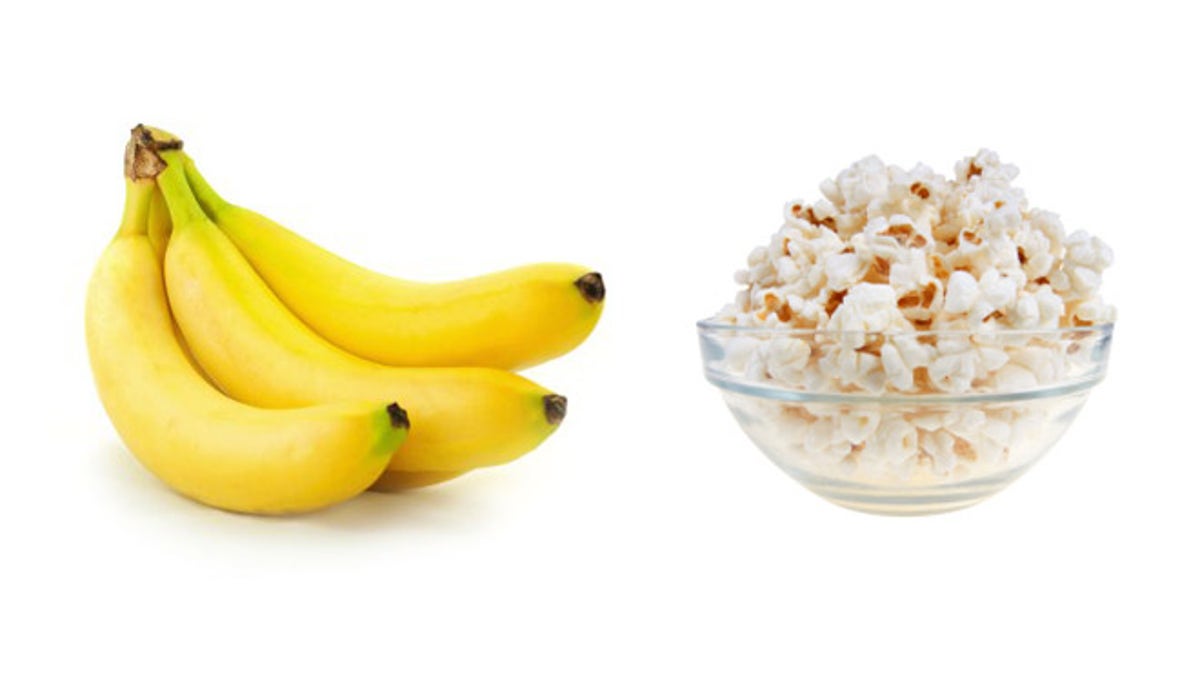
(iStock)
Eating healthy doesn’t have to be a luxury. Dietitian Laura Stadler, M.S., R.D., the owner of New York City–based Laura Stadler Nutrition and Barry Swanson, Emeritus Regents Professor at Washington State University’s School of Food Science, helped put together a list of nutritious foods that won’t bust your budget.
Lentils (about $1.49 per pound or $0.11 per ¼-cup dry serving)
Native to Southwest Asia, lentils are small disk-shaped seeds that are commonly found in Indian and Middle Eastern dishes. “Lentils provide 3 grams of fiber per ½-cup serving. Plus, they are rich in folic acid and vitamin B6 and are a great vegetarian source of iron,” says Stadler. “Cook or serve them with a good source of vitamin C, like tomato, red pepper, or a squeeze of lemon, to make the iron more absorbable.”under $1
Kiwis (about $0.50 each)
Named for the fuzzy brown national bird of New Zealand, kiwis are packed with nutrients, such as fiber, vitamins C and E, and potassium. They also contain the phytonutrient lutein, which can help protect the eyes against macular degeneration and cataracts. Slice or scoop out the emerald green flesh for a tangy snack. Or better yet, leave on the fuzzy brown skin to increase your intake of fiber and vitamin C.
Canned Salmon (about $4.89 per 14.75-ounce can or $0.90 per 2-ounce serving)
Salmon is a great source of omega-3 fatty acids, which have been found to help reduce inflammation and the risk of heart attacks. Because our bodies cannot make these helpful substances, we must get them from our diet and supplements. “Salmon also provides vitamin D, which is important for bone health and may also reduce the risk of heart disease and some cancers,” says Stadler.
Bananas (about $0.45 each)
One of the most highly consumed fruits in the U.S. (27 pounds per person every year!), bananas are rich in fiber, vitamins C and B6, and, most notably, potassium, a mineral known to control blood pressure. One medium banana contains more than 400 milligrams of potassium, about 13 percent of the recommended daily amount. This versatile fruit is great raw, cooked, or frozen, so stock up the next time you’re in the market.
Oatmeal (about $4 per 42-ounce can or $0.18 per ½-cup dry serving)
This unassuming breakfast option contains soluble fiber, which may help lower cholesterol and consequently the risk of heart disease. For a quick breakfast, Stadler recommends making overnight oatmeal: “Cover ½ cup oats with 1 percent milk or soymilk and place in the fridge. In the morning, top with your choice of grated apple, berries, dried fruit, slivered almonds, walnuts, or ground flaxseed and drizzle with 1 teaspoon honey.”
Brown Rice (about $1.99 per pound or $0.18 per ¼-cup dry serving)
Compared with white rice, brown rice provides more nutritional bang for your buck. “It has more fiber and therefore a lower glycemic index than white rice, so it will give you a steadier level of energy,” says Stadler. This is because brown rice does not undergo the processing that white rice does, which removes many disease-fighting nutrients, such as fiber, vitamin E, and antioxidants.
Navel Oranges (about $0.84 each)
Seedless and sweet, navel oranges have a belly button-like protuberance on the blossom end. (In case you’re wondering, it’s actually a second small orange.) These citrus fruits are an excellent source of potassium, vitamin C, and folate, which can help prevent neural-tube birth defects. Look for the best ones from mid-fall to early summer.
Baby Carrots (about $1.45 per pound or $0.27 per 3-ounce serving)
Cute as a button, baby carrots aren’t actually tiny, young carrots. In fact, they’re full-size carrots that have been trimmed down to size. Regardless of their origins, these easy-to-eat vegetables are an excellent source of beta-carotene, a pigment that gives them their bright color. In the body, beta-carotene is converted into vitamin A, which promotes eye health. Vitamin A is also an antioxidant that protects the body against oxidation and gives the immune system a boost.
Popcorn ($3.49 per 9-ounce box or $0.39 per 1-ounce serving)
While butter-soaked movie-theater popcorn has a bad reputation, plain air-popped popcorn is a great whole-grain snack that adds up to only 30 calories per cup. Whole-grain foods contain the entire grain kernel, which means that they have more nutrients than refined grains and can help reduce the risk of stroke and diabetes. For a tasty snack, Stadler suggests topping plain popcorn with “a teaspoon of olive oil for heart-healthy monounsaturated fat and a couple of tablespoons of nutritional yeast to add flavor and vitamin B12.”
Chickpeas/Garbanzo Beans ($1.19 per 15.5-ounce can or $0.31 per ½-cup serving)
An important legume in Middle Eastern and Indian cuisines, chickpeas are low in fat, high in fiber, and a great plant-based source of protein. “Chickpeas have approximately 5 grams of protein per ⅓ cup, almost as much as 1 ounce of meat has,” says Stadler. “I recommend that my patients add rinsed and drained chickpeas to salads for a more satisfying and hearty dish.”
See the slideshow at Real Simple
More from Real Simple
Understanding Unfamiliar Nutritional Terms
24 Nutritious (and Tasty) Snacks
Low-Calorie Snacks for Every Craving
